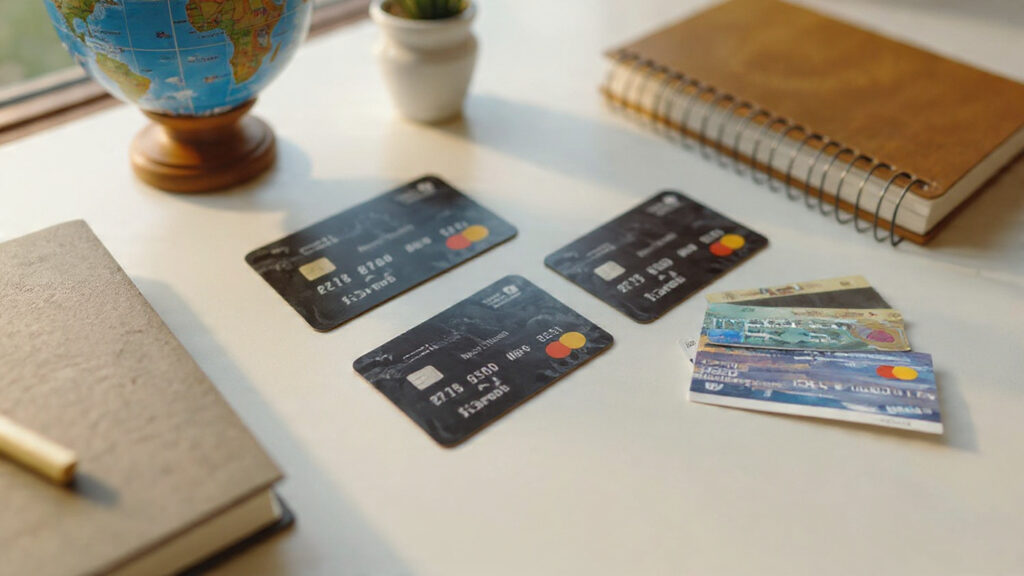A lot of individuals around the world want to go to Europe. There is something for everyone to enjoy in this country because of its long history, attractive cities, and many different cultures. But the thought of going to Europe often costs a lot of money. Flights, hotels, meals, and tickets may add up rapidly and make those on a budget not want to visit. But if you plan, you can see much of Europe without spending much money. This article will show you the best ways to travel throughout Europe without spending much money. You will discover how to enjoy Europe without spending a lot of money, from finding cheap flights to saving money on food and attractions.

Planning Smart Before Your Trip Begins
Choose Budget Friendly Destinations
There are a lot of great cities in Europe, but not all of them are cheap. France, Germany, and Switzerland are some of the most costly countries in Western Europe. Instead of going to Western Europe, think about going to Eastern Europe if you do not have much money. Poland, Hungary, Romania, and the Czech Republic are great places to visit that do not cost much money.
Prague, Budapest, and Krakow are all cities with gorgeous sights, a lot of history, and cheaper accommodation and restaurants. You can have the whole European experience without spending a lot of money.
Travel During the Off Season
Europe is busy in the summer. The most expensive time to fly, stay in a hotel, or do things is June to August. Plan your trip during the shoulder season if you want to save money. This indicates either spring or fall. If you travel in April, May, September, or October, you will escape crowds and get better discounts.
The weather is still nice throughout these months, and you can enjoy your time exploring without waiting in long lines or dealing with crowded sites.
Set a Daily Budget and Stick to It
Before you leave, figure out how much money you want to spend each day. Make a list of the costs you expect to have, like food, transportation, and admission fees. Keep track of your spending with free apps and tools. This will help you stay in charge and avoid surprises.
If you plan your budget, you may enjoy your trip without worrying about going beyond.
Finding Cheap Flights and Transport
Use Flight Comparison Tools
A lot of websites can assist you in locating cheap airfares. You may compare prices between different airlines with tools like Google Flights, Skyscanner, or Momondo. Be open to changing your dates and airports. Sometimes it is significantly cheaper to travel into a city nearby.
You may also set up price notifications for the days you wish to fly. You will get an alert when prices go down so you can book at the perfect time.
Take Budget Airlines Within Europe
Once you get to Europe, traveling between nations on cheap planes is easy. Ryanair, Wizz Air, and EasyJet are some of the companies that offer relatively cheap short flights. You may go from one country to another in less than two hours for less than the cost of a lunch.
Just remember to pack light. These airlines charge more for oversized luggage. You can save even more money if you fit your belongings in a bag.
Consider Trains and Buses
If flying is too expensive or stressful, you may take a train or a bus. The train system in Europe is quick and comfortable. If you want to visit a lot of cities on a budget, search for inexpensive passes like the Eurail Pass or Interrail.
Buses are even less expensive. FlixBus and BlaBlaCar Bus are two companies that span most of Europe and have relatively low prices. You will save a lot of money and enjoy the beautiful vistas, even though it takes longer than flying.
Saving on Food and Drinks
Eat Like the Locals
Food is one of the best ways to experience European culture. But it might be expensive to dine out every day. To save money, do not go to places where tourists hang out. Instead, eat where the locals do. You may typically get fresh, cheap meals at small cafés, bakeries, and food markets.
Street food is another fantastic option. At food vendors, you can try local snacks and traditional foods. You may enjoy authentic flavors without spending a lot of money.
Cook Your Meals
Use the kitchen at your hotel or hostel if you can. Get fresh goods from the grocery store in your area. One of the best ways to stick to your budget is to make meals.
This is useful for breakfast and dinner. Many establishments have cheaper lunch menus so that you can save restaurant meals for lunch.
Limit Alcohol Spending
When you travel, alcohol may rapidly add up. Instead of going to bars or clubs to drink, buy drinks from a supermarket and enjoy them at your hotel or in a public park. You can relax and appreciate the atmosphere for less money in several European cities that allow people to drink in public places.
Finding Affordable Accommodation
Stay in Hostels
Hostels are one of the most suitable places for someone on a tight budget to stay. They have dorms and private rooms that are very cheap. Most hostels also offer complimentary breakfast, access to a kitchen, and a communal atmosphere that makes it easy to meet other visitors.
Use sites like Hostelworld or Booking to identify hostels in decent locations with good reviews.
Try Budget Hotels and Guesthouses
If you do not like hostels, check for cheap hotels or guesthouses. Many modest, family run hotels have clean, comfortable rooms for half the price of big hotels. You can usually find this outside the city center, but traveling around on public transportation is easy.
Staying at a guesthouse gives you a more local experience, and the owner may even cook for you or give you valuable tips.
Use Home Rentals or Couchsurfing
You can rent a room or a house on websites like Airbnb. If you are going on vacation with friends or family, renting a home and splitting the cost can be low budget then booking several hotel rooms.
Another choice is couchsurfing. It is a network where people in the area offer guests a free place to stay. It is a terrific way to meet new people and learn about the place from someone there.
Exploring Cities Without Spending Too Much
Use Free Walking Tours
Most of the larger towns in Europe have free walking tours. Locals lead these tours and tell stories and history about the area. Leave a little tip after the trip based on your appreciation. This is a terrific way to see a place, learn about it, and stay within your budget.
You can discover a trip that works with your schedule by looking online or asking at your accommodation.
Get City Passes and Discount Cards
Many cities have travel cards that let you go to the best sights, use public transportation, and get restaurant discounts. If you plan to go to a lot of places, these passes can help you save money. The Paris Pass, Berlin WelcomeCard, and Vienna City Card are all examples.
Before you buy a pass, be sure you know what is included and how it fits in with your trip plans. Only buy if you are confident it will save you more money than purchasing each item separately.
Visit Museums on Free Days
Some cultural landmarks and museums in Europe allow people to be admitted for free on certain days or at certain times. For instance, a lot of museums in Paris are free on the first Sunday of every month. Plan your visits around these free entry periods by researching ahead of time.
In this way, you can experience art and culture without spending any money.
Staying Safe and Avoiding Extra Costs
Watch Out for Tourist Traps
There are a lot of businesses and restaurants that charge too much and are aimed at tourists. They might charge you a lot or add extra costs to your statement. To avoid this, ask locals where to go and do your research.
Before you choose a place to eat or buy, be sure the apps you use are safe and read reviews. Being aware of what is going on around you can help you avoid fraud and spending money you do not need to.
Carry a Travel Card or Cash Card
Get a travel card with minimal or no fees instead of using your usual bank card. Some banks charge a lot to use your card outside of the US. Travel cards usually have better exchange rates and make it easier to keep track of your money.
Also, stay away from shops that exchange money for tourists. They often give alarming rates. For the best deals, use ATMs or your travel card.
Travel Insurance Saves You in the Long Run
You might think that travel insurance is an unnecessary cost, but it can help you save a lot of money if something goes wrong. Insurance protects you from difficulties coming out of the blue, such as lost luggage or medical emergencies.
Pick a plan that covers the basics and read the fine print. Better to be safe than sorry.
FAQs
When is the best time to go to Europe for cheap in 2025?
Spring break is from April to June, and fall is from September to October. These are the cheapest times to visit Europe. Since it is still nice outside, these months are still good times to visit tourist spots. Flights and hotel stays are cheaper.
How can I plan a cheap trip to Europe in 2025?
You can get cheap flights if you book early, use websites that compare flights, are flexible with your trip dates, and check out low cost airlines. Signing up for flight newsletters and price alerts is another way to get the best deals early.
What are the best European countries for cheap travelers in 2025?
People know that Portugal, Hungary, Poland, Romania, and Greece are all inexpensive places to visit. There are cheap places to stay, eat, get around, and see sights, but the society is still very rich.
How can I get cheap places to stay in Europe?
You could use a service like Airbnb, a hostel, a cheap hotel, or a refuge to stay. You can also get great deals on lodging if you book early, share a room, or stay a little outside the city.
How can I save the most money while traveling in Europe?
Take a train, bus, or low cost flight to get around for less. You could use a train pass like Eurail or a bus network like FlixBus for longer trips. Most of the time, you can get the best deals on tickets by booking early.
Can you eat cheaply in Europe?
For cheap food, you can go to local markets, eat on the street, go to relaxed cafés, or cook at home if your landlord lets you. If you want to avoid tourist spots, pick lunch deals. They generally cost less than dinner menus.
How can I plan a cheap trip to Europe in 2025?
If you want to save money on gas, pick fewer places to visit at first. Check out free or cheap sites, and make daily budgets for food, fun activities, and getting around.
Is it possible to have fun in Europe without spending a lot of money?
Yes! Walks, festivals, public parks, museums with free days, and historic sites are just a few of the free things you can do in many towns. For real experiences that do not cost much, check out new neighborhoods and attend cultural events.
Should I bring cards or cash with me to Europe?
Using more than one is best. It is simple and risk free to use a credit or debit card that does not charge high fees for international use. But it is helpful to have some local cash on hand for small purchases, markets, and getting around in smaller towns.
What should I not do if I want to travel cheaply in Europe?
Do not fall for tourist scams, make last minute reservations, or pay a lot for expensive rides to and from the airport. To save the most money and have the best trip possible, research places to visit, compare prices, set daily budgets, and be open about your plans.
Conclusion
It does not have to cost a lot to go to Europe. You can see its cities, wildlife, food, and culture on a budget if you prepare ahead and make sensible decisions. You may have a great time without spending a lot of money, whether you are going to castles in Germany or beaches in Spain. Keep in mind that you should travel during the off season, take public transportation, stay in hostels or rentals, and hunt for free or cheap things to do. You do not have to miss out when you travel on a budget. It is about making memories that will last a lifetime and spending money wisely. You can now travel to Europe without spending a lot of money.



